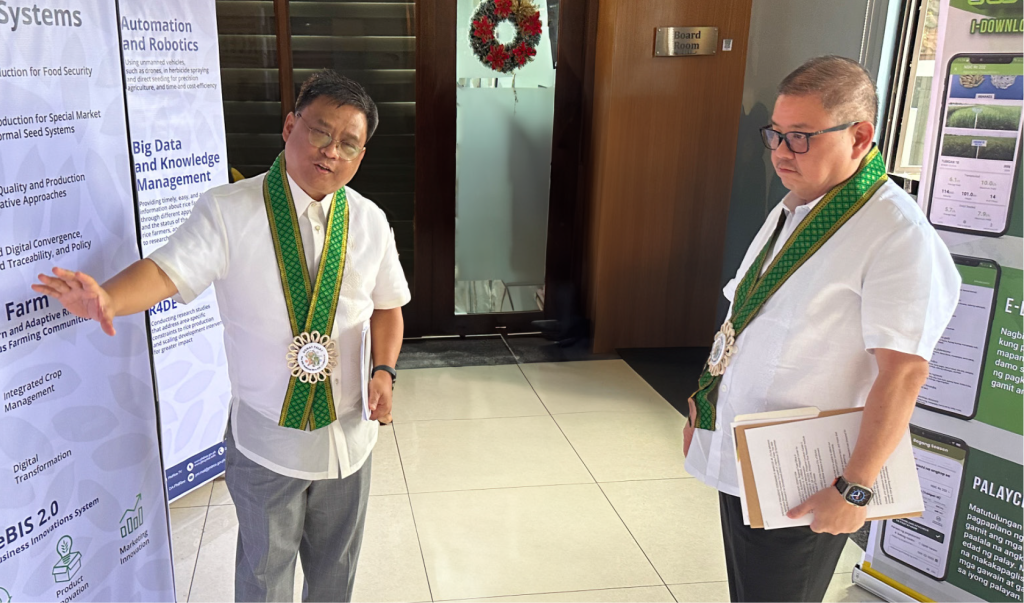
Agriculture Secretary Francisco Tiu Laurel Jr. has underscored the need for a science-based approach to enhance local food security and lessen reliance on imports during the Ugnay Palay: 35th National Rice R4DE Conference in Nueva Ecija, Nov. 29.
In his keynote address, the freshly confirmed cabinet member said, “Our ultimate goal is to swiftly reduce rice imports for food security and efficiency. We also aim to inspire a new generation of farmers, researchers, and innovators to ensure long-term food security for a prosperous Philippines. Together, let us fulfill our shared dream of a strong, prosperous, and food-secure country.”
President Ferdinand Marcos Jr. conveyed his support through a message read by Laurel. The chief executive expressed optimism with the growing support from government agencies, private partners, and stakeholders to energize and fortify the rice industry as envisioned by his administration’s goal of a food-secure nation.
“I enjoin all of you to continue working better to ensure that the benefits of our initiatives reach every farmer in our country. As we do this, let us be guided by the science-based strategies presented in the PhilRice Strategic Plan 2023-2028, emphasizing the necessity to educate farmers on modern technologies for integration into their daily work,” Marcos said.
On the same occasion, the Bank of the Philippine Islands (BPI) Foundation granted the farmers under the Rice Business Innovations System (RiceBIS) Program in San Carlos, Negros Occidental with P5.2 million to help them increase their income.
With the presence of Agriculture Secretary Tiu Laurel Jr., Executive Director John de Leon, Deputy Executive Director for Development Karen Eloisa Barroga, and program lead Diadem Gonzales-Esmero received the symbolic check from BPI officials, including trustee Mary Catherine Elizabeth Santamaria and project manager Melanie Magbuhos.
In the opening program, Undersecretary Leocadio Sebastian discussed the MASAGANA Rice Industry Development Program and outlined the government’s plan for the rice industry, which includes a whole value chain approach to ensure a steady supply of affordable rice for consumers, increasing income for rice farming communities, and nutritional security.
The conference focused on various strategies to improve agricultural practices. PhilRice Executive Director John de Leon highlighted the MAtatag strategy, which aims to optimize yield, increase resilience, reduce risks, and maintain ecological integrity. Deputy Director Karen Eloisa Barroga explained the SAma-sama strategy, which enhances bargaining power, market access, and economies of scale. Dr. Aurora Corales discussed the GAnado strategy, which aims to increase farmer engagement, value addition, and market linkage. Dr. Eduardo Jimmy Quilang outlined the NApapanahon strategy, which improves access to data and services, reduces transaction costs, and ensures efficient service delivery.
The Nov. 29-Dec. 1 Ugnay Palay had five plenary sessions with four concurrent sessions that presented 30 research papers centered on the MASAGANA thematic areas and 63 posters on relevant technologies and practices. Close to 600 in-person participants from PhilRice Central Experiment Station (CES), branch stations, and partner agencies joined the national conference.




